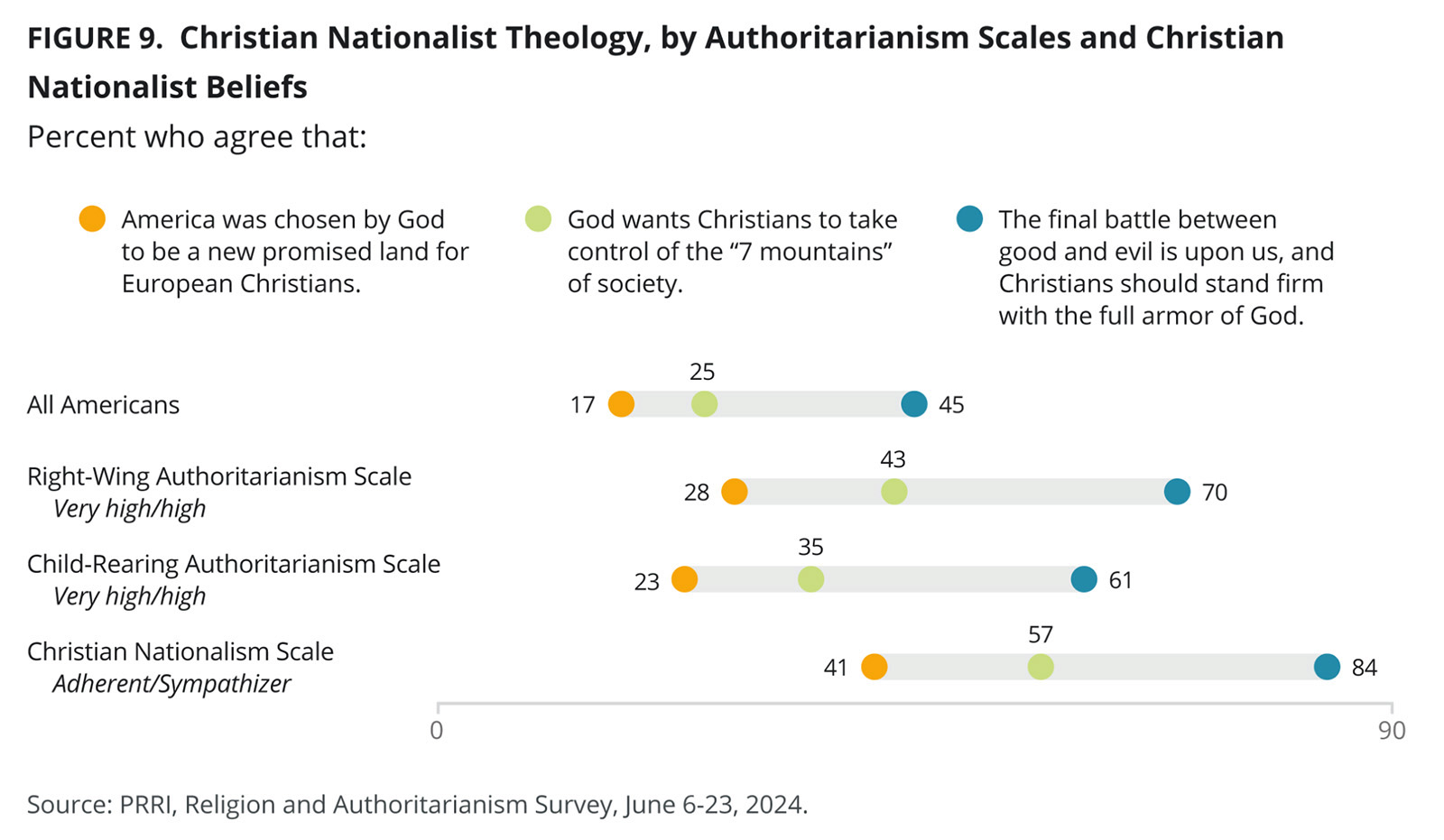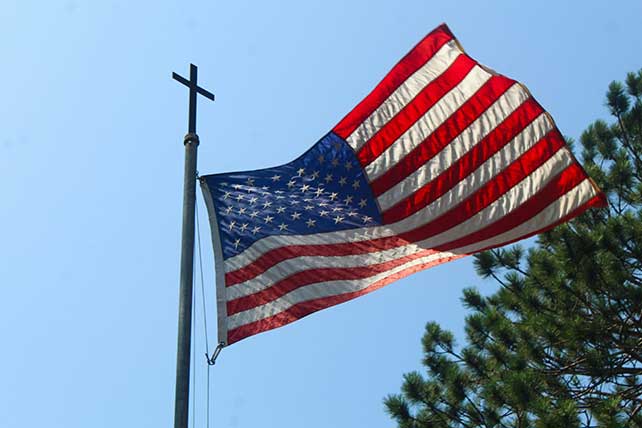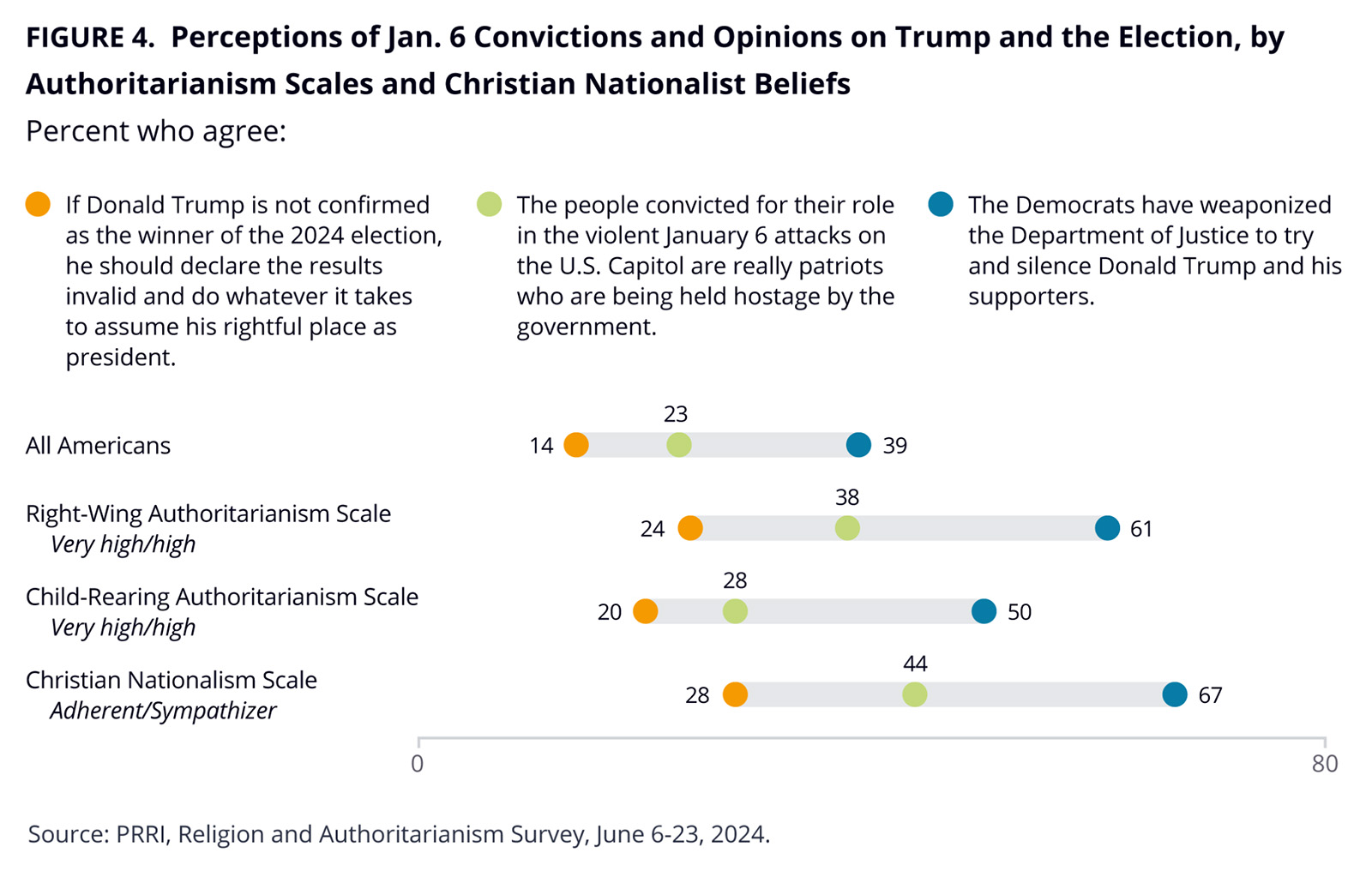PRRI also asked questions about current events, such as whether respondents agreed that those who were convicted of crimes for participating in the Jan. 6 insurrection are “patriots” who are “being held hostage by the government,” or that Trump should do “whatever it takes to be president” if he is not declared the winner outright in November. Few Americans overall agreed with either statement (23% and 14%, respectively), but support was noticeably higher among supporters of Christian nationalism (44% and 28%) and those who scored high on the RWAS (38% and 24%).
“Perceptions of Jan. 6 Convictions and Opinions on Trump and the Election, by Authoritarianism Scales and Christian Nationalist Beliefs” (Graphic courtesy PRRI)
Researchers also asked respondents whether they were supporters of “7 Mountains” theology, a belief system popular in some conservative circles that calls on Christians to seek control over the seven “mountains” of society — including politics. Most Christian nationalist Sympathizers and Adherents (57%) said they backed the sentiment, as did significant percentages of those who scored high or very high on the RWAS (43%) or the CRAS (35%).
The theology found its greatest support among white evangelical Protestants in the survey (48%), followed by around 4 in 10 Black Protestants (42%) and Hispanic Protestants (42%).
“Our new survey shows, too, a close intertwining of apocalyptic and dominionist views among Americans who support authoritarianism. In short, authoritarianism in America is not wholly secular, but has important religious dimensions,” Deckman said.
Supporters of Christian nationalism were also highly likely (84%) to agree that “the final battle between good and evil is upon us, and Christians should stand firm with the full armor of God,” as were those who scored high or very high on the RWAS (70%) and the CRAS (61%).

“Christian Nationalist Theology, by Authoritarianism Scales and Christian Nationalist Beliefs” (Graphic courtesy PRRI)
Perhaps most troubling of all: While no group exhibited majority support for the idea that “American patriots may have to resort to violence in order to save our country” (only 16% of Americans overall agreed), the idea was most popular among Christian nationalism supporters, with 33% of Adherents and Sympathizers saying they agreed, while 28% and 21% of those who scored high on the RWAS and CRAS, respectively, agreed.
This article originally appeared here.


